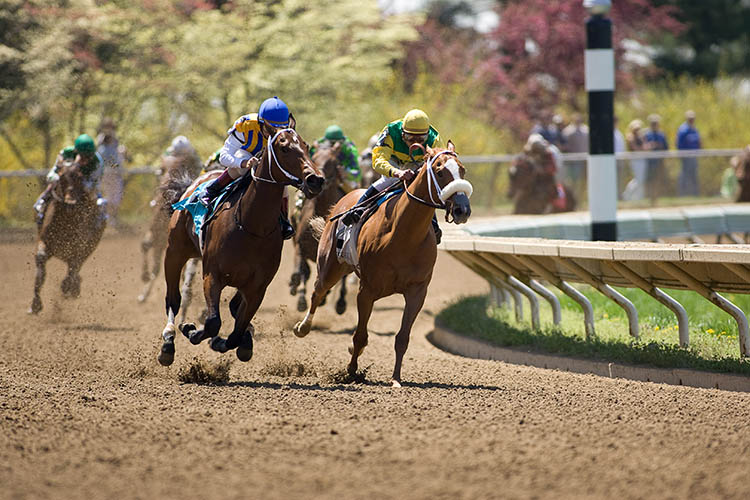Follow-up UK mRNA biomarker study will build on promising research into preventing catastrophic racehorse injuries
Follow-up UK mRNA biomarker study will build on promising research into preventing catastrophic racehorse injuries

LEXINGTON, Ky. – Catastrophic injuries in Thoroughbred racehorses is a top concern for the industry and for its fans. That sentiment is shared by researchers at the University of Kentucky’s College of Agriculture, Food and Environment, who are working to learn more about changes happening at the cellular level that might indicate an injury is present before it becomes career- or life-ending.
According to Allen Page, staff scientist and veterinarian at UK’s Gluck Equine Research Center, a recently completed study submitted for review shows it is possible to identify several early markers for horses at risk of catastrophic injury, possibly allowing for intervention before those injuries happen.
In this initial study, Page and his colleagues analyzed blood samples from more than 1,000 Thoroughbred racehorses. The samples, collected by participating racing jurisdictions from across the country, have come from both catastrophically injured and non-injured horses in a quest to better understand if there are any red flags in horses that suffer a catastrophic injury.
Previous research showed that many catastrophic injuries occur in limbs with underlying and pre-existing damage, leading to the theory that these injuries occur when damage accumulation exceeds the healing capacity of the affected bones over time. As a result, researchers think it is likely there may be markers of this damage that can be detected prior to an injury.
The identification of protein biomarkers for these types of injuries has been explored in previous research with limited success. As a result, the group opted to focus on quantifying messenger RNA gene transcripts or markers, knowing that the results would likely be much more sensitive than measuring proteins.
“We are definitely encouraged by our findings in the initial study. Out of the 21 markers we measured, three of them show real promise as being able to predict injury,” Page said. “Since the ultimate hope is to develop a screening tool that can be used pre-race to identify horses at increased risk for injury, we anticipate adding multiple other markers with our new study that is just getting started.”
As part of their new study, Page and his colleagues plan to utilize RNA-sequencing, a relatively new technology, to expand their search to the approximately 22,000 protein-coding genes horses have. This will dramatically increase the likelihood that they will be able to identify additional markers for horses at risk of injury. They plan to do this by using the large number of samples that have already been collected, further leveraging their initial study and decreasing the amount of time it will take to complete their new study.
The new study has been funded by the Kentucky Horse Racing Commission’s Equine Drug Research Council, which also funded the three-year initial study.
“A lot of the credit for these projects goes to the KHRC and the Equine Drug Research Council. Their willingness to fund our projects is really a testament to their interest in supporting innovative and novel ideas geared towards improving the safety and well-being of horses and riders,” Page said.
“I am pleased that the EDRC is able to continue to provide support for this important study and that Dr. Page is able to continue his work on finding ways to protect our equine athletes,” said David Horohov, chair of the UK Department of Veterinary Science.
Joining Page in the research from UK’s Gluck Center are Horohov, Emma Adam, assistant professor, research and industry liaison, James MacLeod, John S. and Elizabeth A. Knight chair, and Ted Kalbfleisch, associate professor.
Ag Equine Programs Research

